Annual Report 2022–23
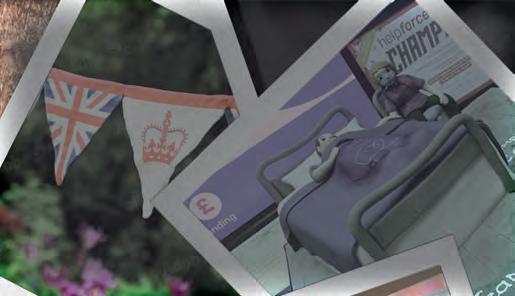
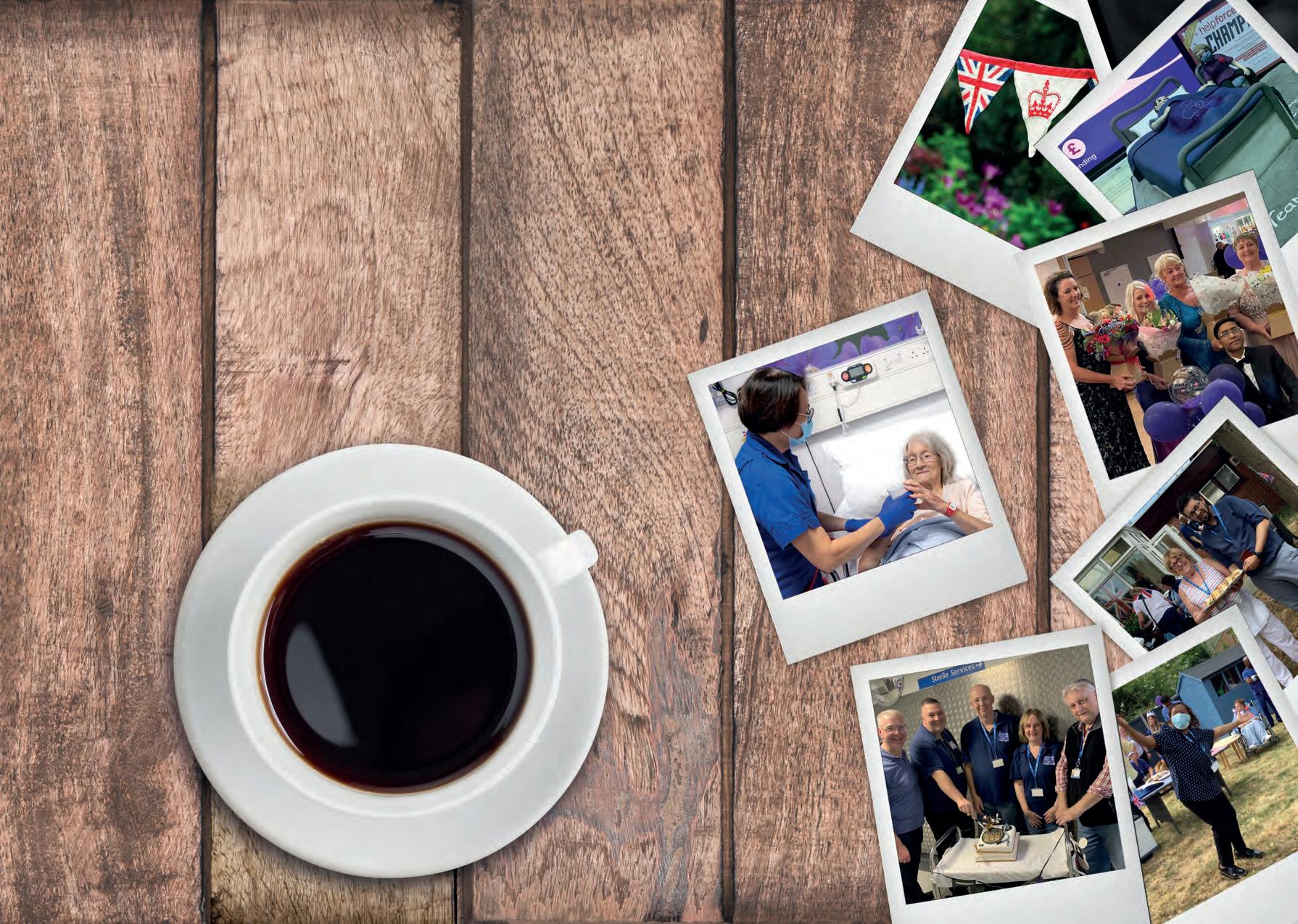 The Queen’s Award for Voluntary Service
The Queen’s Award for Voluntary Service
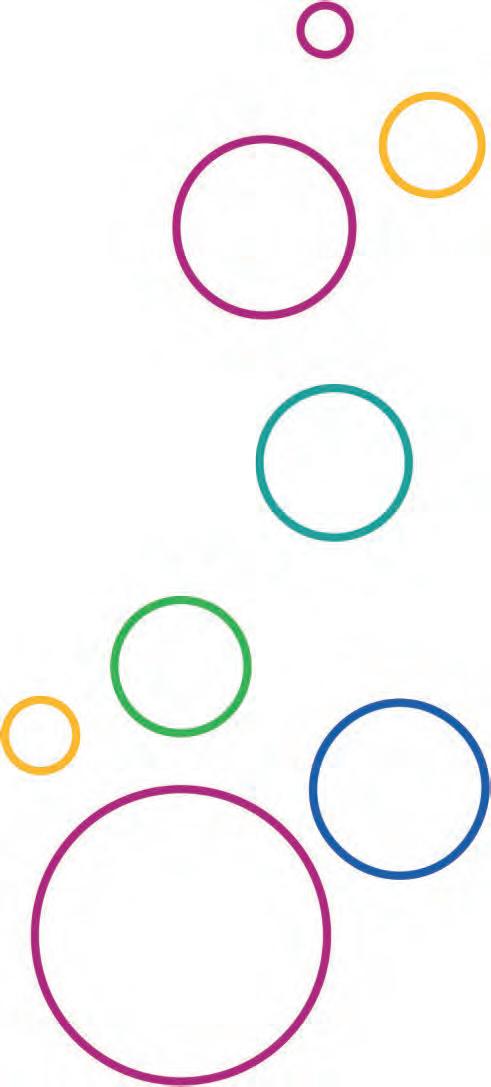
2 Contents Introduction 3 Foreword 4 Winning a national award for enhancing cancer care services 5 Patient benefits are the driving force in PAHT’s new Electronic Health Record 7 In memory of Mollie Pattenden 8 Marking the NHS 74th birthday 9 Organ Donation Committee update 9 International Nurses’ Day and International Day of the Midwife celebrations 10 Co-production - nutrition and hydration 11 Fundraising for the Royal British Legion 12 Liver Ball fundraising success 13 Medical Advisory Committee (MAC) annual dinner 14 Enjoying the Queen’s Jubilee 15 Tea for two at Buckingham Palace 16 Patient Led Assessment of the Clinical Environment (PLACE) update 17 Healthcare Excellence Through Technology (HETT) conference 18 Floral displays to brighten up the hospital 20 A busy year at Harlow Hospital Radio (HHR) 21 Taking part in a wheelchair audit 22 Our work with the Risk Management Group 23 Supporting the Patient Safety Group 23 Complaints Reference Group collaboration 24 Improving essential care – Falls Prevention Group 25 Other areas we have been involved in... 26 Thank you...with cake 28 Committee members 29
Introduction
Welcome to our report for 2022/23 on our activities, achievements and future work.
As chair, I would like to say thank you to my team. We have had three new members join us, Jane Mason, Khalid Javid and William Stringer. A particular highlight for our team was when Diane Deane-Bowers, my vice-chair, was an instant success talking at the national Healthcare Excellence Through Technology (HETT) conference in 2022 on her experiences of NHS technology. Also, Andrew Stuttle, member of the Patient Panel, liaised with colleagues at Leeds Teaching Hospitals NHS Trust to share learning about setting up a patient-led Complaints Reference Group, this was followed up with colleagues from Leeds joining us via Microsoft Teams, which was an excellent opportunity for them to see the group in action.
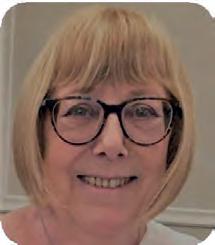
Although far from our memories, COVID is still with us; however, we are slowly returning to normality. During the pandemic, with the use of technology, the Patient Panel continued to work in a new way.
You will read in this report how we have been involved with PAHT colleagues on many important projects across the hospital, including with our external partners.
We are committed to holding conferences that are open to the public on topics that may have an impact on their lives or on services. In 2022, we worked in partnership and set up One Step at a Time, an independent group that works with PAHT. Emma Harnett, Macmillan cancer education lead nurse from Hertfordshire and West Essex Integrated Care Board, and Shahid Sardar, associate director of patient engagement and experience at PAHT and I, founded the group in early 2020, focusing on cancer information by patients, for patients. Our first conference in September 2021 was a huge success and in November 2022 we were awarded Team of the Year at The Royal College of Nursing Awards. Also, in 2022 we were interviewed by the Care Quality Commission (CQC) and in their report the Patient Panel were rated as outstanding.
There are so many people to say thank you to, from Lance McCarthy, chief executive, and Hattie Llewelyn-Davies, chair – PAHT board, to all of the clinical, operational, estates and facilities, and corporate teams at PAHT as well as members who have moved on including Sue Eggert and Barry Rogers. I hope this report goes some way to highlight their work with us and that all of our readers enjoy this summary of our achievements across 2022/23. Look out for more opportunities to share your experiences with us - in the meantime, please contact me at ann.nutt@nhs.net if you are interested in joining the Patient Panel.
Ann Nutt Chair of the Patient Panel
3
Foreword

It is my great pleasure to contribute a piece in our amazing Patient Panel’s Annual Report. It shows how effectively we work together that I am invited to make this contribution.
Over the last year, the Patient Panel has worked with the Trust on a number of services to improve the lives of our patients and make their experience of our Trust as positive as possible.
• Their participation with PAHT colleagues in the One Step at a Time service has resulted in winning a major award when they were named the Royal College of Nursing Team of the Year. We hope we can build on the experience of co-designing services to create other similar services in the future
• Their work to improve our environment led to the beautiful pots of plants all over the main Princess Alexandra Hospital site, cheering up everyone who comes to our hospital
• Their tireless role insisting we must improve our signage, resulted in funding being agreed and they worked with us to ensure the new signs meet everyone’s needs
As chair of the Panel, Ann Nutt has, at my invitation, accompanied the Trust non-executive directors when we do our monthly visits to services. Ann is a great addition to these visits and brings her knowledge and expertise to great effect.
The board is very proud of the Patient Panel’s work, it is a really valuable resource for everyone at PAHT.
My thanks to all of you for your time, energy and commitment to making PAHT the best Trust we can be.
Hattie Llewelyn-Davies Chair of The Princess Alexandra Hospital NHS Trust (PAHT)
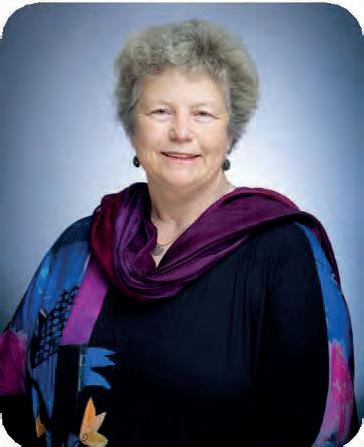
4
Winning a national award for enhancing cancer care services
We are proud to be part of a team who are committed to enhancing cancer care services and have won a national award.
As part of the One Step at a Time team, an independent group of volunteers that works with The Princess Alexandra Hospital NHS Trust (PAHT) and the Hertfordshire and West Essex Integrated Care Board, we won the Team of the Year category at The Royal College of Nursing (RCN) Awards 2022 in recognition of our work to promote the patient voice.
Together we produced a range of information for patients who have received a cancer diagnosis, focusing on a variety of videos and a printed pocket guide. The topics are explored by other patients and their loved ones, giving unique insights, and are available in different languages. This information is provided to patients when they receive a cancer diagnosis to support them on their journey throughout their treatment.
Shahid Sardar, associate director of patient engagement and experience at PAHT, said: “This is an award recognising our incredible patients, because this is information for patients, by patients. Huge thanks to the public and staff for their incredible work and to the RCN for recognising its potential – it means a greatdeal to the team, who are dedicated to improving the experience of patients with cancer.
“One Step at a Time are continuing to develop the resources available for patients who receive a cancer diagnosis and are proud to be making a difference.”
Ann Nutt, chair of the Patient Panel, said: “We have received great feedback about the information produced for patients who receive a cancer diagnosis, this came from our successful conference ‘Fight Cancer with Hope’ held at Harlow College in September 2021.
“It is a privilege to represent the patient voice and to have worked with patients and their loved ones to give the information that others need, at a difficult time when they need it most.”
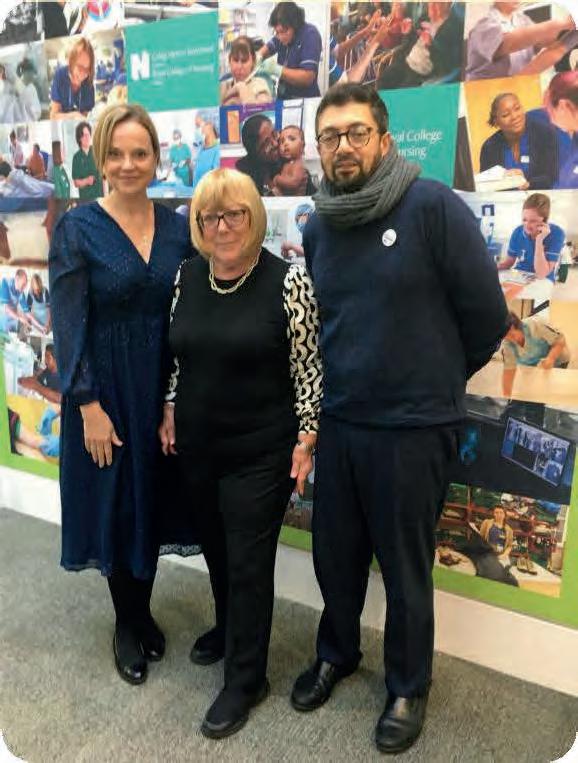
5
Emma Harnett, Macmillan cancer education lead nurse from Hertfordshire and West Essex Integrated Care Board, added: “We are working together to help improve the lives of patients with cancer in west Essex and amplify the patient voice. We have a vision; cancer information by patients for patients, professionally produced, and we have put the patient at the heart and centre of what we do.
“Winning the RCN award is fantastic, with recognition from our peers in the nursing profession. We are so proud of what we have achieved as a team, and I’m proud to represent the nursing voice.”
Sharon McNally, chief nurse and deputy chief executive at PAHT, added: “Congratulations to the team on this amazing achievement – I feel incredibly privileged to work with such amazing colleagues and I am delighted to see them recognised. Well done to everyone involved.”
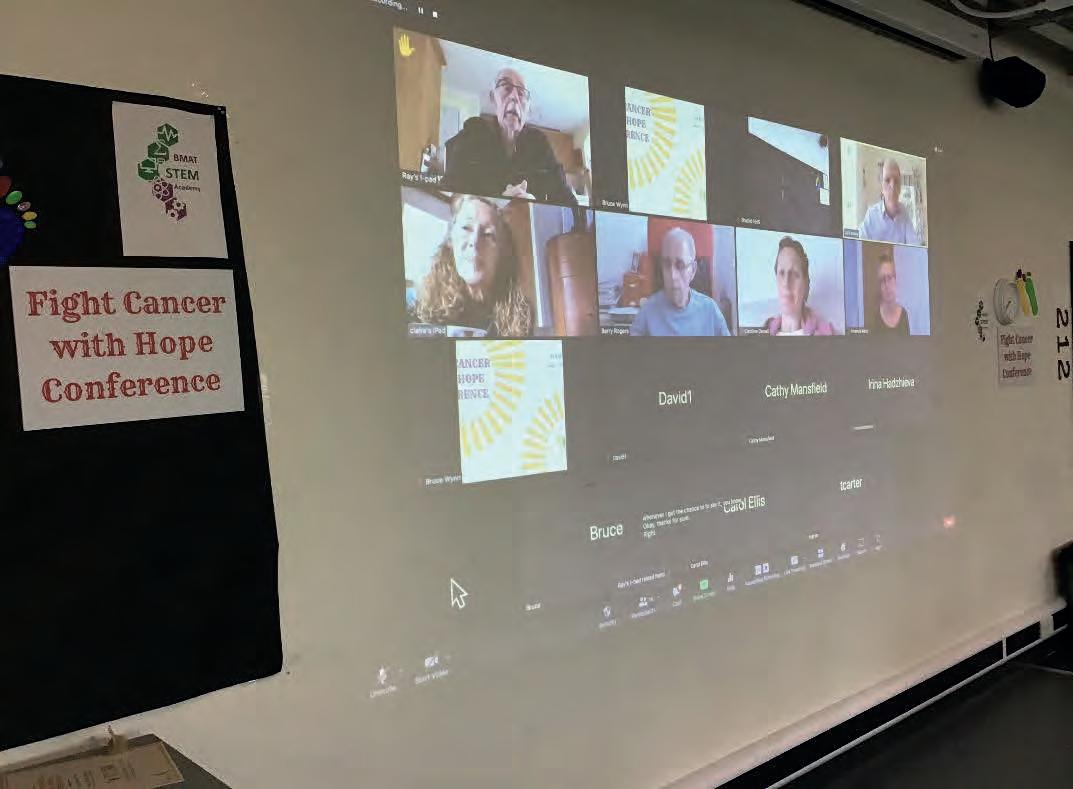
One Step at a Time are keen to expand its membership, if you are interested in joining and have experience of cancer and/or cancer services, please contact hweicbwe.canceronestep@nhs.net or visit www.canceronestep.co.uk for more information.
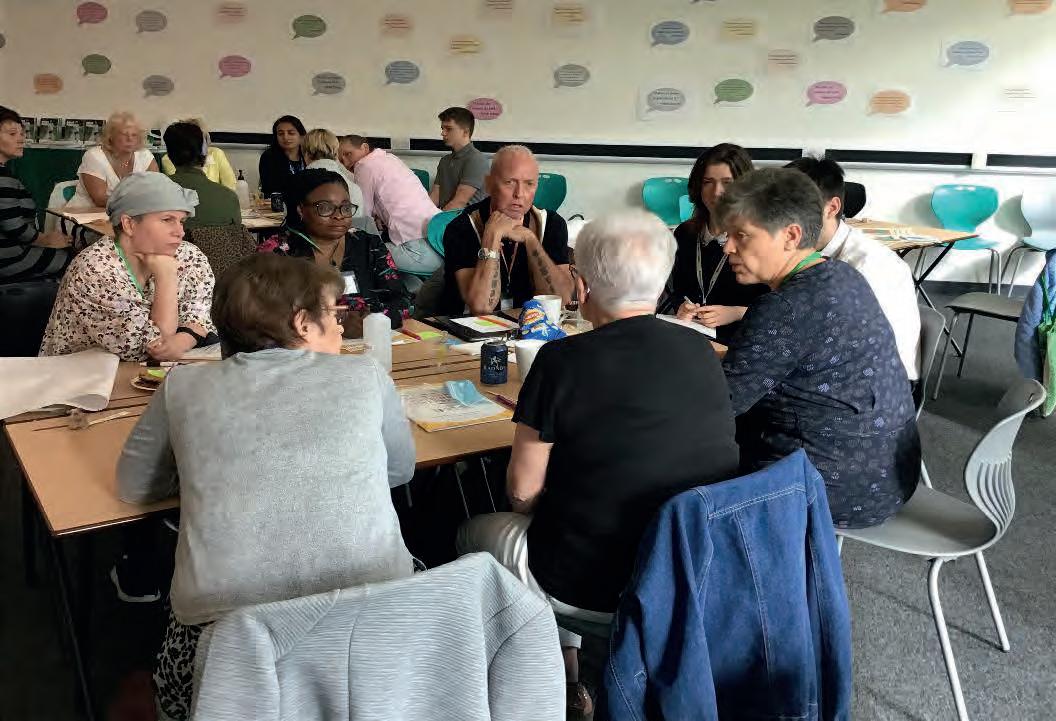
6
Patient benefits are the driving force in PAHT’s new Electronic Health Record
In March, we joined PAHT colleagues for the official contract signing with Oracle Cerner for the new electronic health record (EHR).
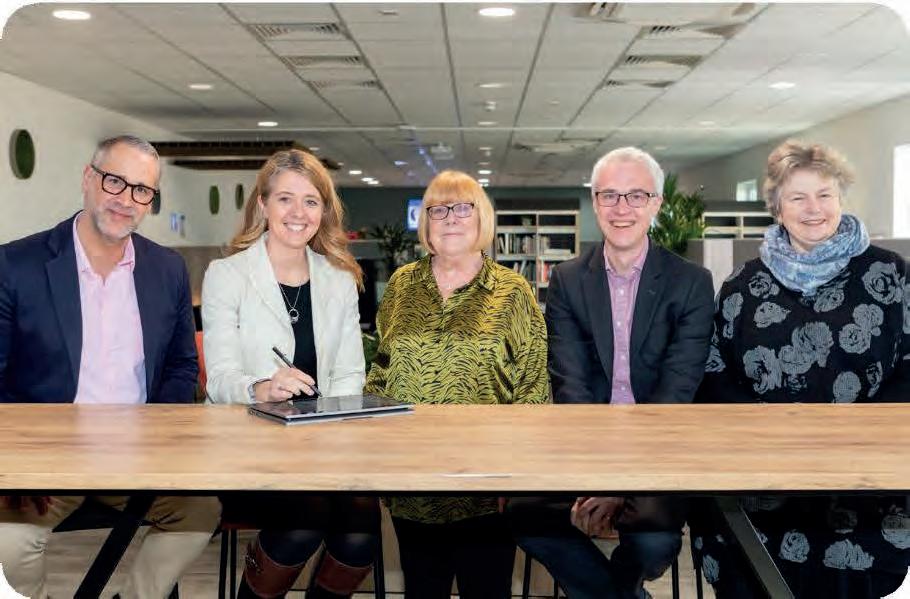
An EHR is an integrated digital record of our patient care, drawing together information from all Trust systems that store our personal health data. It helps facilitate easy access to this clinical data, which includes the Shared Care Record used currently by PAHT and also by other hospital, mental health and community Trusts, as well as GPs and social care.
Transforming your care
Having an EHR will transform PAHT’s ability to review, track and store our patient data, simplifying health care delivery, our ability to identify areas that require improvement and system administration. NHS Trusts up and down the country are adopting EHRs in order to improve the quality of care, patient safety and health outcomes - giving clinicians easy access to patients’ full medical histories and enhancing health information sharing amongst integrated care partners. From left to right, Quentin Kidner, client executive (Oracle Cerner); Distie Profit, general manager (Oracle Cerner); Ann Nutt, chair of the Patient Panel; Lance McCarthy, chief executive; and Hattie Llewelyn-Davies, chair.
Benefits for patients
• Improved patient safety and care
• Reduced repeat testing with the availability of results across care settings
• Avoiding repeating the same information to different clinicians
• Increased clinician awareness of key patient information e.g. allergies, previous medical care and additional needs
• Reduced hospital attendances and admissions as clinicians will have awareness of pre-existing conditions and treatment plans
• Improved access to appointment booking including rescheduling
• Better support to help patients manage their own care and giving patients ownership of their data
7
Simple and easy to use
Most importantly of all, having an EHR will improve our patient experience, as the system is designed to be simple and convenient for patients to use. A dedicated Patient Portal – the front door to the system – will enable patients quick, safe and easy access to their Trust health records and give them more control of their care, including booking or rescheduling appointments, requesting medication and messaging their healthcare providers.
Timetable
The EHR will take around 18 months to implement and will go live in autumn 2024. We will keep you updated on progress.
How can I find out more?
PAHT are focused on patient engagement so we are all ready and prepared for the switch-over to the new system in autumn 2024. We are working with PAHT colleagues to ensure our voices are heard. We welcome your feedback and your ideas on the best ways to engage patients from all backgrounds. In the meantime, look out for more information coming soon.
In memory of Mollie Pattenden...
We were greatly saddened by the death of Mollie Pattenden on 19 January 2023, a valued colleague and friend to many across the hospital.
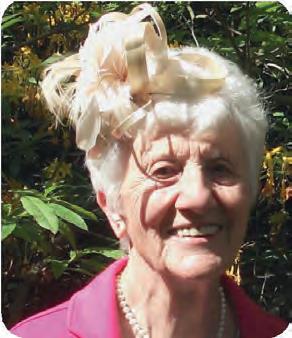
Mollie was a volunteer at the hospital for over 15 years, and spent ten years supporting us in the Patient Panel. Mollie will be greatly missed by us, the voluntary services team and colleagues across PAHT.
Mollie had many fond memories whilst volunteering at PAHT, and in particular she was so proud to have represented the Patient Panel at the Queen’s Platinum Jubilee garden party and to have received a letter of congratulations from His Royal Majesty King Charles on celebrating her 65th wedding anniversary with her husband, John.
Mollie’s passion was nutrition and hydration, with a focus on protected meal times at the hospital. We currently have funding from NHS England for a project on co-production, nutrition and hydration, and we decided unanimously to name the project after Mollie.
Our thoughts remain with Mollie’s family, friends and colleagues.
8
Marking the NHS 74th birthday
We celebrated the 74th birthday of the NHS on 5 July 2022, a special opportunity for PAHT to thank colleagues for their hard work and dedication. We were pleased to join in by donating a cake for people to enjoy.
There was a stand at the hospital where the team encouraged passers-by to stop and fill in ‘making a difference’ nominations, for people who stand out/make a difference to them or the work that they do. Each nomination that was filled in was pinned to display boards, to really celebrate and showcase colleagues.
People were stopping for many reasons too; some were filling in the nomination cards, others were coming to see the fact that somebody had nominated them for making a difference and some people stopped to just read all of the nominations or enjoy a slice of cake.
One thing that we learned from the day was that something as small as a thank you really does go a long way.
It was fantastic to be part of the celebrations.
Pictured: Right, Ann Nutt, chair, cutting the cake the Patient Panel gifted for the occasion.
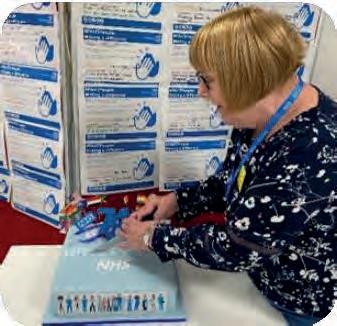
Organ Donation Committtee update
By Sandra Newens, chair – PAHT Organ
member
Donation Committee and Patient Panel
We are very grateful indeed to clinical staff at PAHT for their successful efforts during the past year to make sure, once again, that no potential organ donors were missed. Our deep appreciation also extends to those bereaved family members and friends of deceased patients who so kindly agreed to organ donation. This resulted in seven patients benefiting from lifesaving transplants.
The Organ Donation Committee is delighted to report that the Trust has recently appointed Dr Dagmar Holmquist as the clinical lead for organ donation and, following the disruption caused by COVID, we are now looking forward to getting back to promoting organ and tissue donation inevery part of our local community. Later on, an important focus of our activity will be this year’s Organ Donation Week (18–24 September).
9
International Nurses’ Day and International Day of the Midwife celebrations
In May 2022, together with PAHT colleagues, we marked International Nurses’ Day (12 May), which is celebrated every year on the anniversary of Florence Nightingale’s birth, and International Day of the Midwife (5 May).
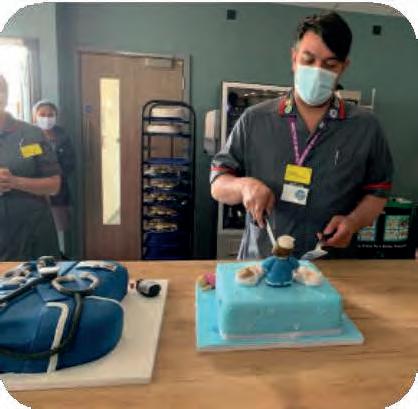
The days provided us with the opportunity to highlight the contributions of nurses and midwives.
To mark the special occasions, we took part in a range of celebration events including an awards ceremony, where we presented a Patient Panel award to Jack Pope in recognition of his support of women and families. We also delivered special treats to the amazing teams, with celebration cakes (pictured being cut by Giuseppe Labriola, formerly director of midwifery and assistant chief nurse and now deputy chief nurse, right).
At the event, Sharon McNally, chief nurse and deputy chief executive, said: “I hope that all of our amazing nurses and midwives enjoyed the special celebration event.
“International Nurses’ Day and International Day of the Midwife recognise the contribution of nurses and midwives around the globe and the fundamental role that they play in the experiences of our patients, women, birthing people and their families.
“Nursing and midwifery are fantastic professions. You all continue to amaze me with your dedication, resilience and the ability to rise to any challenge that we face, as one team.
“A heartfelt thank you to each and every one of you for the amazing work that you do. I am incredibly proud of you all.”
Thank you to everyone involved from all of us at the Patient Panel.
10
Co-production - nutrition and hydration
Co-producing improvements to food and drinks at The Princess Alexandra Hospital - Hertfordshire and West Essex Integrated Care System (ICS)
This project to improve the food and drinks available for patients was funded by NHS England, as part of a national programme. The work, with us (the Patient Panel), PAHT team and Governance International (a non-profit organisation supporting co-production of public services and outcomes) focused on an integrated approach to quality improvement. In memory of a longstanding member of the Patient Panel, it was named The Mollie Pattenden Nutrition and Hydration Co-production Project.
At our first meeting with the PAHT team and Governance International, Governance International led a discussion on what co-production was about and highlighted that it could cover co-commissioning, co-design, co-delivery and co-assessment of services and outcomes. As a group, we then identified the specific areas in which co-production was likely to be valuable in designing and implementing improvements to food and drinks policy and practice in the hospital. Following the Governance International approach, six groups (Co-production Labs) were set up to take these ideas further, covering:
• Co-design of a food and drinks section in the welcome to hospital leaflet, for patients and carers
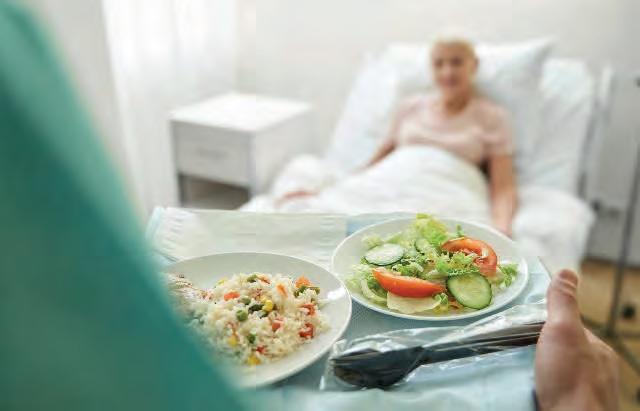
• Co-design of a food and drinks passport for patients, so that their food and drinks requirements and preferences are clear and easily accessible to all colleagues in the hospital
• Co-design of 24/7 food and drinks availability for patients, carers and visitors in the hospital (mainly based on vending machines)
• Co-design of 24/7 food and drinks availability in the waiting area of the emergency department (ED)
• Co-design of a ‘patients’ mini-kitchen’ facility in some parts of the hospital
• Co-design of patient and carer inputs related to food and drinks issues in staff training programmes
Each of these groups involved patients, as well as hospital colleagues, and considered ways in which the solutions identified could continue to involve contributions from patients and carers in their delivery. A report is scheduled to be sent to NHS England soon and it is anticipated that the projects will be implemented during the following six months.
Thank you to everyone involved.
11
Fundraising for the Royal British Legion
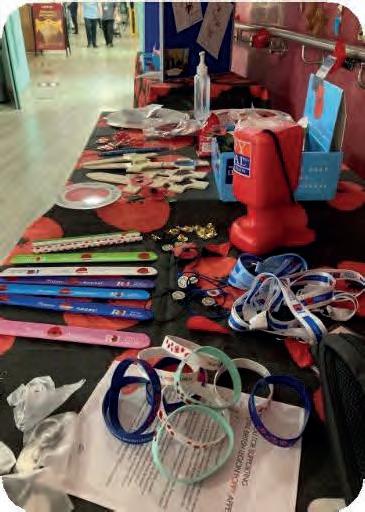
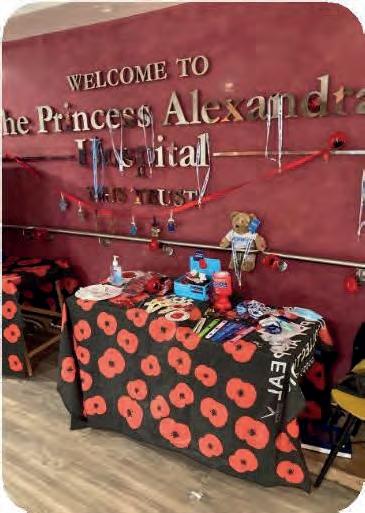 By Jacqueline Jackson, Patient Panel member
By Jacqueline Jackson, Patient Panel member
The Poppy Appeal is the Roya l British Legion’s biggest fundraising campaign, held every year in November, the period of Remembrance. Thanks to the appeal, the RBL can ensure our Armed Forces community and their families, both past and present, receive the support they need and deserve.
Every year, volunteers distribute over 40 million poppies to help the vital work in supporting the Armed Forces community.
I had the honour to be on the RBL poppy stand at the entrance of PAHT (pictured right) on Tuesday 8 November, this gave me a great opportunity to meet and chat to our fantastic patients and staff - so many people shared their stories regarding links to the military and lost (but not forgotten) family members. The session was not about ‘shaking the tin’there was no need to do this as people flocked to the stand.
The display and the items from the RBL were amazing - well done to Ann Nutt, chair, Nich Taylor, friend of the Patient Panel, and John Bawden, a member of the community who is 85 and served in the Armed Forces, for setti ng up on the Sunday afternoon and a big thank you to the hospital team that took part in a session selling poppies. We were supported over the week with volunteers from the Quality First, safeguarding, research and pharmacy teams.
A special thank you to John, who spent a number of sessions talking about the articles he brought for the display. Our community are so very generous - they gave so much money that we had to change the collection tin. In total, we raised £803.52.
We were also proud to take part in the Remembrance Day service at the hospital on 11 November, with Diane DeaneBowers, vice-chair, laying a wreath on behalf of patients.
Thank you again to everyone for your support and we look ahead to marking Remembrance Day again this year.
12
Liver Ball fundraising success
By Jacqueline Jackson

I was pleased to work with Claire McClements, Lynn Hanrahan, Christine Gilroy-Downes and Robert Gilroy-Downes to support Dr Deb Ghosh with the organisation of the Liver Ball, a black-tie event at the Manor of Groves inSawbridgeworth, which was planned for April 2020.
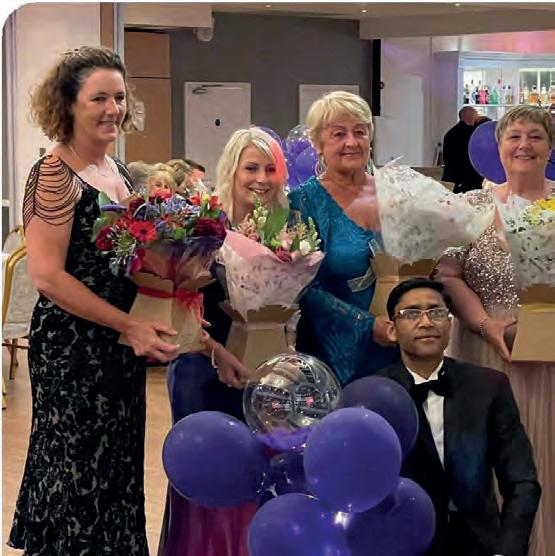
The plan was to raise money to enable PAHT to purchase a fibro-scanner - a cutting edge piece of equipment which can detect early liver issues in a fast, non-invasive way and could help save lives. Sadly, one of our fellow organisers, Robert (Bob) died in December 2019 from liver disease at the age of 60. Before the idea of the Liver Ball came to fruition, Bob was the original fundraiser, working with Dr Ghosh, helping with fundraising and gaining donations from many sources. Bob’s wife, Christine, supported by Claire, Lynn and myself, as well as friends from the Liver Group, decided to continue to take Bob’s hope for the fibro-scanner appeal forward – so we continued the plan for the Liver Ball.
As we all know, COVID hit in early 2020 – so the many months of planning were put on hold. A new date was set for 21 May 2022. Raffle prizes took a great deal of organisation and local companies, restaurants, spas, football teams, theme parks and individuals were all amazingly generous with the donation of some fantastic prizes.
The evening was a huge success - in total we raised £8,527. The plan is that the next big liver fundraising event will be this year – with the Patient Panel assisting with promoting this great cause. Please look out for more information coming soon.
Pictured: The Liver Ball Planning Committee - from left to right, back row, Jacqueline Jackson, Claire McClements, Lynn Hanrahan, Christine Gilroy-Downes, and front row, Dr Deb Ghosh.
13
Medical Advisory Committee (MAC) annual dinner
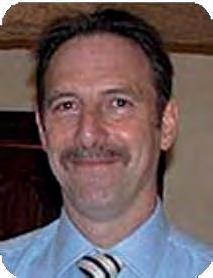
On Saturday 18 March, Ann Nutt, chair, and Diane Deane-Bowers, vice-chair, were delighted to attend the PAHT Medical Advisory Committee (MAC) annual dinner, which was organised by Dr Shashi Gopinath, along with Dr Preethi Gopinath and Dr Deb Ghosh.
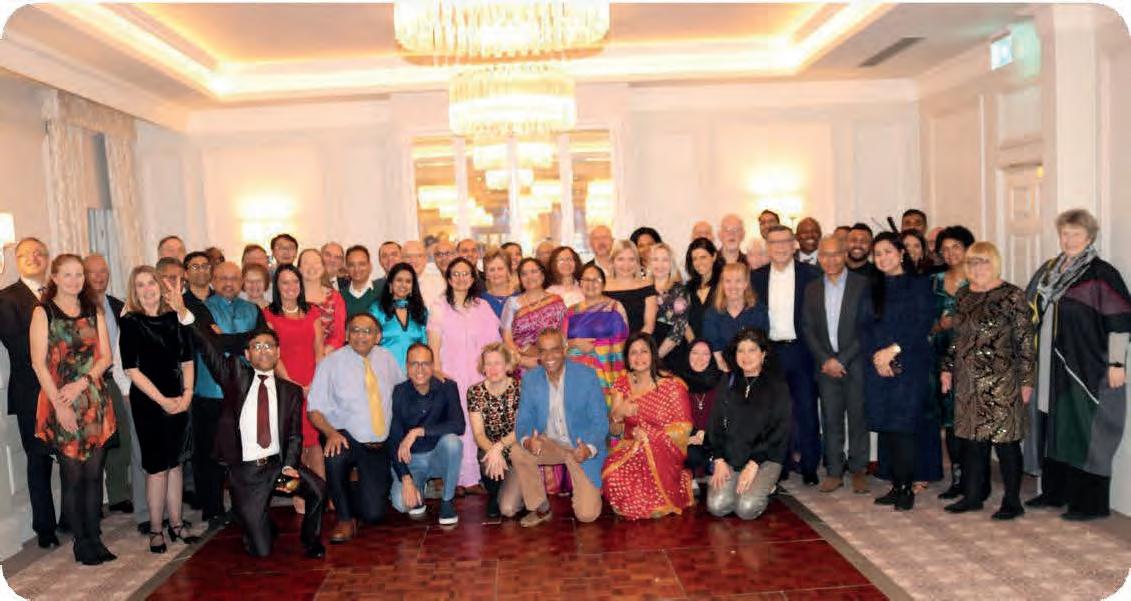
The MAC group consists of medical consultants who are registered with the General Medical Council (GMC). They play a key role in advising the trust board on medical and clinical governance matters, in order to supportand maintain the safety and quality of care provided to patients. The Patient Panel has an excellent working relationship with MAC and Ann has presented several times at their meetings, not only local but at the eastern region MAC.
The dinner was held at Down Hall Hotel and Spa, in Bishop’s Stortford, with 64 people in attendance. It was also an opportunity for Ann (on behalf of patients and the community) to present long service awards to retired former colleagues, Mr Charles Aldam (pictured right) and Mr Paul Allen (pictured far right), consultant surgeons, who dedicated over 35 years to healthcare and surgery at PAHT. Mr Aldam and Mr Allen were also given a letter of recognition from Robert Halfon MP, and an invitation to His Majesty’s Garden Party at Buckingham Palace this summer.
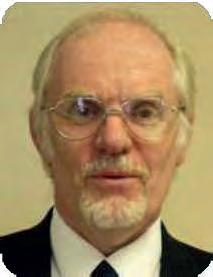
Ann and Diane also presented Dr Yolanda Mackenzie, retired consultant and former medical director, with an award for her 30 years of service within the histopathology speciality and her contribution to research at PAHT, even after retirement.
Thank you to all involved in organising a fantastic evening to recognise and celebrate PAHT consultants. We wish Charles, Paul and Yolanda a happy and healthy retirement.
14
Enjoying the Queen’s Platinum Jubilee
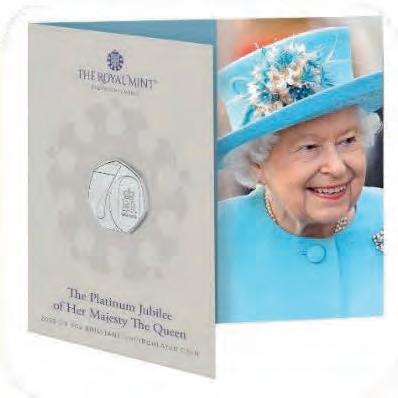
The Patient Panel were delighted to host a fun Jubilee Party at the hospital on this unique historical occasion that merited a special celebrationl .
Many of the patients who joined us would have remembered the Coronation and appreciated the opportunity to recognise the Queen’s service to the country. We were pleased to have the support of colleagues at PAHT. The estates team prepared the garden for us and provided beautiful flowering tubs.
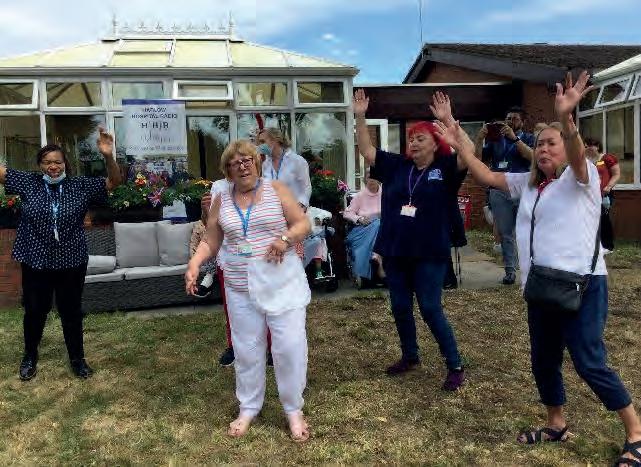
Music was provided by the dedicated Hospital Radio team and it was quite moving to see frail patients and their carers dancing with r each other, either on their feet, or from chairs. After more than two years of challenging circumstances, it was lovely to see staff able to relax and laugh in a social setting.
One lady, who had just celebrated her birthday, had been isolated for two years and could not believe that she at an actual celebration with real people and real entertainment. She relished the event as did another attendee who brought her interactive toy cat to share in the fun. Attendees also had the opportunity to meet a Pets as Therapy dog, which they enjoyed.
Thank you to everyone who supported us across the hospital, including East Herts District Council, who decided that our initiative was worthy of a Jubilee grant for the celebration, as did the hospital charity. The food was provided by a local business, Rosie Lea’s, and the beautiful celebration cake by Dorrington’s - thank you.
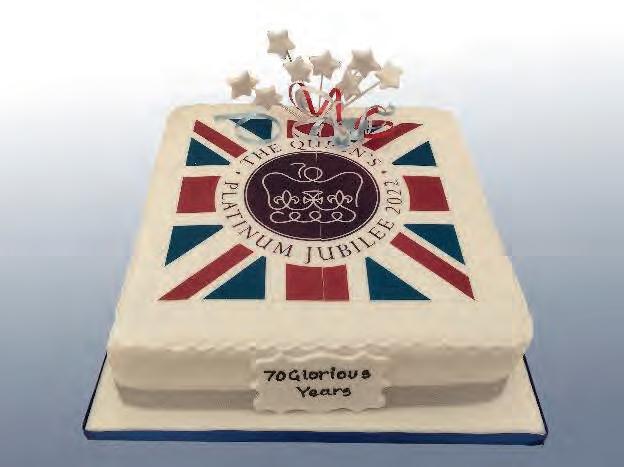
To celebrate, we also gave all babies born at PAHT over the Jubilee weekend a certificate and a commemorative coin (pictured, right). We were delighted our efforts provided such joy among both patients and colleagues and we hope to organise similar events in the future.
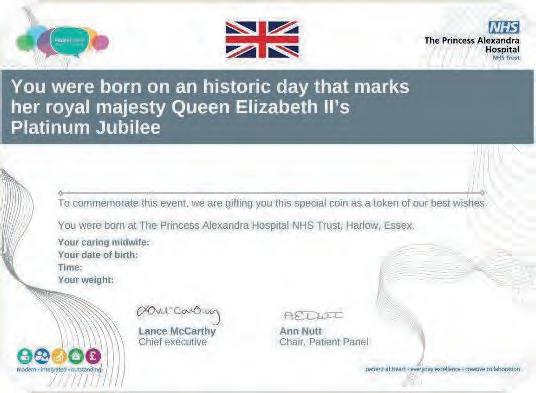
15
Tea for two at Buckingham Palace
 By Diane Deane-Bowers, vice chair
By Diane Deane-Bowers, vice chair
In the wake of our great success with the Queen’s Award for Voluntary Service (QAVS), two members of our panel were selected to attend a Buckingham Palace Garden Party. Unfortunately, Ann Nutt, chair, who is the driving force behind our panel, was not able to attend as she had been selected previously for her voluntary work. Ann is one of a handful of people nationally to have been awarded the QAVS twice by the Lord Lieutenant. As vice-chair I was accompanied by my colleague Barry Rogers, Patient Panel member leading on cancer services and member of the Cancer Board, who despite ill health, has given many years of stalwart service to the Patient Panel before retiring this year.
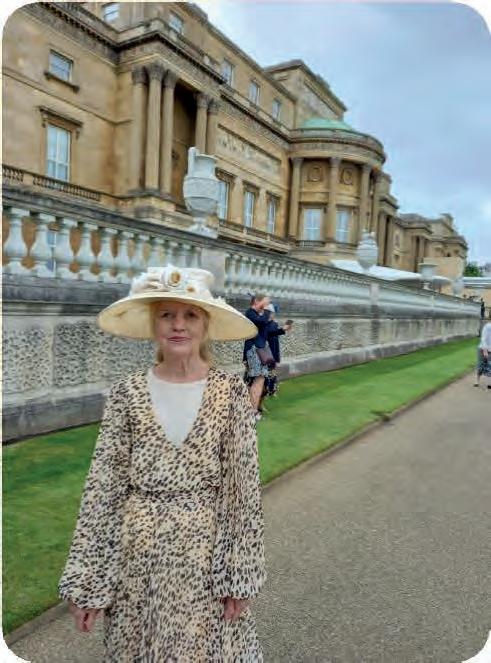
Sadly, the weather on the day in late May was not k ind to us. It was quite chilly and rain was predicted. However, we were determined our spirits would not be dampened and set out with much anticipation for London. We experienced much hilarity on the underground line as a fancy hat is not routine among the office attire. One person asked me if “I was off to the Palace “and it was fun to respond, ”Yes I am”.
On arrival, we had spare time so we thought we should stop for a coffee somewhere. It soon became clear that the environment was too exclusive for a small café, but a nearby five-star hotel caught our eye. The floral displays were exquisite, the service was exceptional and the coffee was delicious as one might expect from such a venue. Adding to the enjoyment was a sea of posh hats and glorious outfits of fellow Palace attendees. Many of the men looked equally glamorous in full morning attire and there was an atmosphere of great joy and excitement as we were all in full Jubilee mode.
We had quite a long wait to access the Palace gardens but the delay was worthwhile. The scene before us was quintessentially British, with manicured lawns, staff in Palace livery, a lively band and fellow attendees who were delighted to be there.
At about 3pm we were summoned to a buffet style tea of an array of fancy sandwiches and delicious bitesize pastries and cakes. It was a wonderful occasion that we were pleased to have the opportunity to attend.
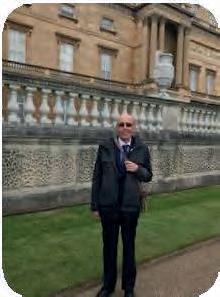
16
Pictured: Diane (above right) and Barry (below right) at Buckingham Palace.
Patient Led Assessment of the Clinical Environment (PLACE) update
By Jacqueline Jackson
Prior to the COVID pandemic, I had been part of the PLACE team at PAHT for a number of years – I even travelled to Leeds Teaching Hospitals NHS Trust for training – so PLACE is something that I feel is vitally important for our patients, relatives, carers and the PAHT team.
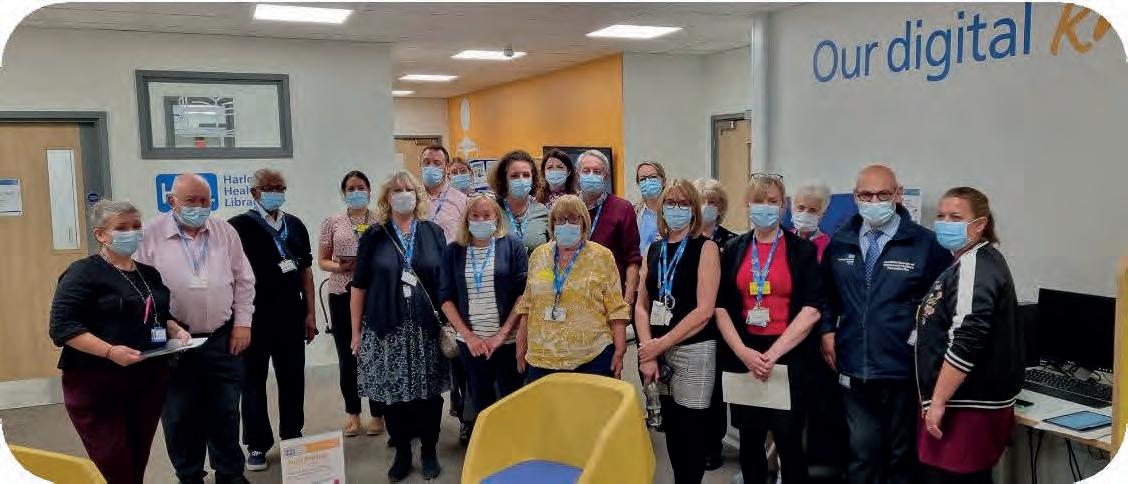
As Ann Nutt, chair, said when she wrote to invite a number of non-clinical people to be involved in the assessment: “This is a unique opportunity for members of the public to observe the hospital as it carries out its daily activities caring for the sick.”
As an assessor, we were asked to look at the hospital environment and decide whether it would meet the expectations of a patient.
My own view when I am part of any PLACE team is: “Would I want my mother to be treated here?” There were two sessions involved in my actual assessments – one in the morning, and one in the afternoon, so we had a chance to view the hospital at different times. Some of the team attended 6am sessions to see how breakfast was presented. A number of us met up on a Wednesday morning in the Learning and Education Centre and were put into teams of four – we were then given an ipad to record our findings. Each group had approximately four wards to visit, one of the wards would include us observing lunch being served. Following the PLACE plan, we used the buzzer to let us into the ward so we truly followed a patient’s or a relative’s journey – in all cases we were let in quickly once we had identified ourselves. .
To conclude, we found that some areas of the hospital do still need an upgrade, with parking as an issue. However, the staff were polite and welcoming, the food was nourishing, well-presented and tasty, and patients feel they are listened to.
Thank you to the members of the public who were involved in the PLACE assessment.
17
Pictured: The PLACE assessment team.
Healthcare Excellence Through Technology (HETT) conference
By Diane Deane-Bowers
Approximately two years ago, I was invited to represent patients at the newly formed digital senate at PAHT, which is chaired by Miss Helen Pardoe, chief clinical information officer and consultant colorectal surgeon. The remit of this team is to facilitate the digitalisation of the hospital.

My selection was highly amusing to myself and my family, as I was known to be a technophobe with no knowledge of artificial intelligence (AI)/deep learning and all things digital. Surprisingly, this ignorance was deemed my greatest asset. I was there to represent the many patients who may be totally unaware of the exciting innovation that will gradually transform the patient experience at the hospital and beyond. During these two years I have experienced a real epiphany: I am now quite well informed about all things digital and wish to champion the use of high tech at the hospital. I am now a massive fan of Click, the BBC AI/tech programme and frequently am left in awe of the latest gadgetry.
Apparently, there is even a name for someone like me – ‘digital immigrant’ - which is someone who has come from a place of complete ignorance and now embraces the culture of AI/digital. Earlier this year, I was asked if I would like to represent hospital patients at the Healthcare Excellence Through Technology (HETT) conference which was due to take place in September. At the time I had no idea how prestigious this event was and what a fabulous experience it would be for me.
The selection process was quite simple. I had an hour-long preliminary Zoom meeting with one of the organisers, who was utterly charming and made me feel valued and very relaxed. We talked about my extensive use of the NHS (I have been chronically ill since childhood), my current position on the Patient Panel and my hopes for the future of the NHS in general and our local hospital in particular. Much to my surprise, she then requested that I appear in a film which would be shown at intervals throughout the conference day. This seemed to meet with much approval although I saw it as a mere truthful record of my experience, both as a hospital user and volunteer.
18
The third stage was another meeting with my fellow panellists, who all had expertise in the delivery of digitalisation at local hospitals and regionally. We had a trial run of questions as the actual delivery would be unscripted. The chair of the panel was an eminent former medic who now worked as a facilitator for NHS policy. He made us all feel completely at ease so that we were able to respond to challenging and detailed questions without hesitation.
The day itself exceeded all my expectations. From the moment I arrived at the Excel Centre as a former Londoner, it was wonderful to experience the vibes of the capital city next to the Thames. I was overwhelmed at first by the size, professionalism and display stands on offer but thanks to the excellent advance preparation and feedback, I was able to be myself and thoroughly enjoy the unique opportunity.
I joined the panel just after lunch for an hour-long question and answer session so felt like a panel member on ‘Question Time’. As it was unscripted, I was even able to include a brief tribute to PAHT, as undoubtedly the Patient Panel’s achievement has been greatly helped by all the support of the PAHT colleagues we have received in the last 10 years.
After my talk, I was surprised and pleased to be approached by people who were genuinely interested in the patient perspective. Such insights are very rare at these events, hence my unexpected popularity. I was able to visit several stands and saw much innovation I would wish for PAHT in the coming years. A willingness to embrace the digital world is firmly embedded in the digital senate, although the financial constraints of the NHS are paramount in any decision making. I was particularly pleased to see so many staff from the hospital who had travelled to the venue to support me.
It was a wonderful experience for me and has made me even more passionate about the digital world. I am truly thankful to Miss Pardoe, Ann Nutt, chair of the Patient Panel, and Shahid Sardar, associate director of patient engagement and experience, for supporting my attendance. The Patient Panel have benefited from several presentations of digital initiatives, and we are delighted to have this privilege and to express our opinions as advocates of all local patients.
The digital journey is slow and complicated. There is extraordinary diagnostic technology available to alleviate suffering and progressive illnesses, and administrative tasks will be quicker and more effective, releasing staff for other work. There is nothing to fear and patients must be reassured that it will be of great benefit to them and there will be much improvement in the hospital experience in coming years.
Pictured: The conference, with me (Diane) taking part virtually.
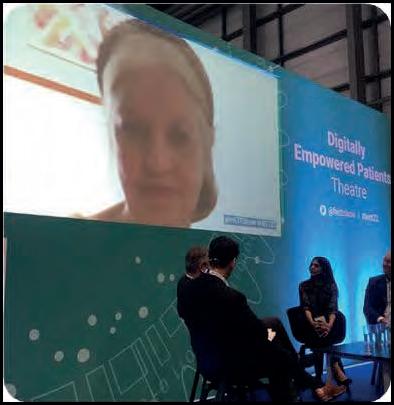
19
Floral displays to brighten up the hospital
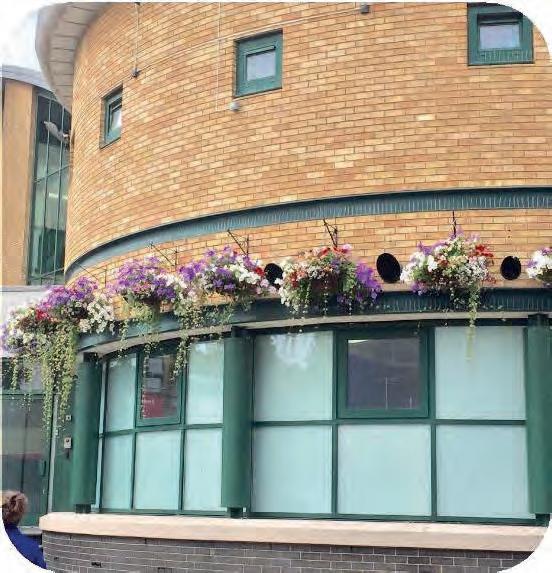 By Ann Nutt, chair
By Ann Nutt, chair
In recent years, Diane, vice chair of the Patient Panel, and I have been concerned about the exterior of the hospital, which was an unattractive environment for attendees.
The infrastructure is old and cannot be easily adapted to the demands of the modern NHS. Consequently, there has been much restructuring and building work to meet current needs. We spent a great deal of thought on how the environment might be improved to calm and reassure patients who may be facing a stressful diagnosis or challenging treatment. Unlike urban hospitals, The Princess Alexandra Hospital is blessed with extensive grounds which feature many green spaces.
We thought there was potential for creating some aesthetically pleasing space at an appropriate cost. The lawns are well tended and we suggested an instant injection of colour with various baskets and planters to decorate the exterior. Natural greenery and beauty are a tonic when stressed and we hoped we would achieve this effect.
We worked with the estates and facilities team and throughout the summer, the planters became a riot of colour and even during the heatwave, they were tended with loving care. Of course, we expected them to be lovely, but we did not anticipate the wave of gratitude we received. Staff and patients commented on this unexpected beauty. Our collaboration was deemed to be so successful that we hope to repeat something similar this year. It has proven that a really simple idea can have a very significant impact on the patient experience, which of course is the remit of our panel.
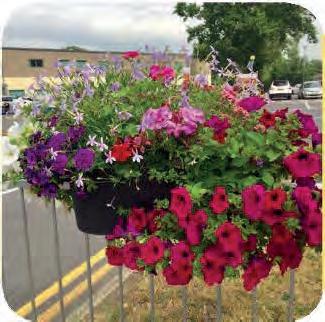
We must also thank Stuart Gordon, strategic head of facilities and property services, for his very speedy installation of a new bus shelter which replaces a very small one. The new shelter is more spacious and wheelchair accessible, so people can wait with some protection from the elements. An added bonus is that it is also being used as a drop off point with plenty of room for patients with disabilities.
We are delighted with this collaboration with estates and facilities and hope to work on many new initiatives in the future to benefit all who access the hospital.
20
A busy year at Harlow Hospital Radio (HHR)
By Mark Ranger, fundraising lead at HHR
In 2022, at Harlow Hospital Radio we celebrated our 50th year of broadcasting - two years late.
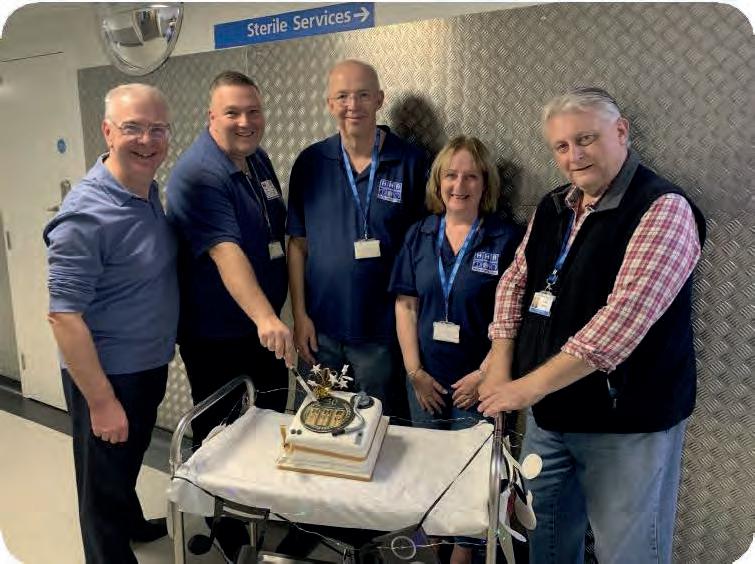
For an organisation whose existence is about making people’s stay in hospital a bit more pleasant, it has been difficult when we were not able to even access our studio during the COVID pandemic period. Luckily our music programming software can work independently 24 hours day, so our listeners at least had something to hear nearly all the time.
Now that things are much more normal, we have been able to finally turn our attention to moving forward. Many more live programmes are being broadcast and we are developing a number of special programmes that can be put into the schedule to fit a specific time of day.
We are delighted that many colleagues at The Princess Alexandra Hospital are talking to us about using HHR to increase awareness of special health messages - for example the Make movement count campaign, which is designed to help patients remain as active as possible, supporting them to get up, get dressed and get moving.
We are also very happy to be working together with the hospital on more joint events. In the summer, we had a wonderful time providing music for the Platinum Jubilee tea party in the Gibberd Garden, with some fabulous dancing from patients and colleagues, organised by the Patient Panel.
HHR is your radio station, soon to be heard not only at your bedside but on your computer. Whether you would like to become part of our volunteer team, or are interested in being interviewed on the radio, please talk to us - our contact details are on our website: harlowhospitalradio.com. And of course, if you would like to make a request for yourself, for a family member or a friend - we are here for you, 24 hours a day.
Thank you to everyone for your support.
Pictured: The HHR team with their 50th anniversary celebration cake.
21
Taking part in a wheelchair audit
By Jacqueline Jackson
Ann Nutt and I were asked to carry out a wheelchair audit at PAHT on behalf of the Patient Panel, so, along with Andrew Stuttle and Frank Sumair, and wearing our most comfortable walking shoes, we set off to visit every ward to see what type of chairs were available to assist in transporting patients if and when needed.
We had to ensure that the following safety points were covered:
• Is the chair clean and seat fully intact, with no rips?
• Is there a lap belt?
• Is the brake working?
• Can the chair be pushed forward, not pulled backwards?
• Are there foot rests on the chair with a strap to stop the feet falling backwards?
• Is the chair self-propelling, meaning it can be moved by a patient sitting in the chair?
• Does it have a holder for notes?
• Is the chair easily accessible if needed, not locked away?
The conclusion of the audit was as follows:
• Funding needs to be made available for every ward/department to have at least two wheelchairs that meet the set criteria
• Each chair needs to have a metal bar welded to one of the side bars at the back of the chair to prevent the wheelchairs being taken off the hospital site
• The hospital has recently, at our suggestion, purchased a paediatric wheelchair
We look forward to working with the hospital on these improvements, including presenting at induction sessions on the correct way to push a wheelchair.
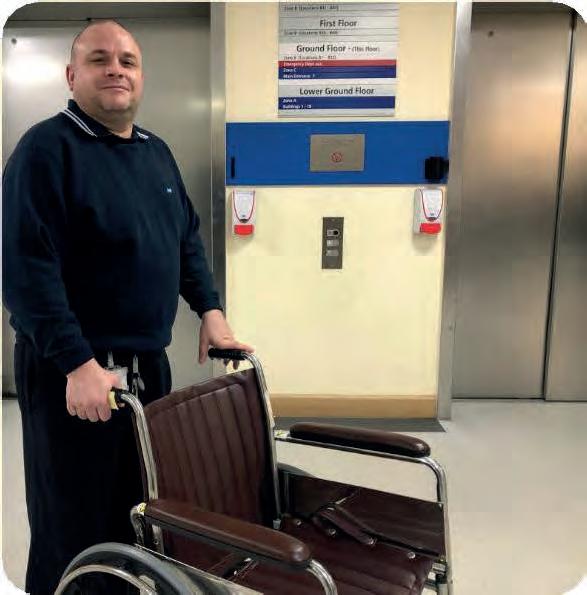
22
Our work with the Risk Management Group
By Jacqueline Jackson
I am pleased to be part of the PAHT Risk Management Group, chaired by Fay Gilder, medical director, which looks at risks associated with all areas across the hospital.
The group reviews detailed risk information, which includes risk assessments and Datix supports our people to collect and manage risk data).
The meeting starts with a review of the action log and all outstanding actions are scrutinised and support offered where needed.
The capital programme is a regular on the agenda, as is the workforce plan and the COVID risk register. The group then looks at key department risks by exception, with priority given to red risks and those linked to Datix reports. I am very impressed with the hospital that the patient remains at the centre of all of their decision making.
Supporting the Patient Safety Group
By Andrew Stuttle, Patient
Panel member
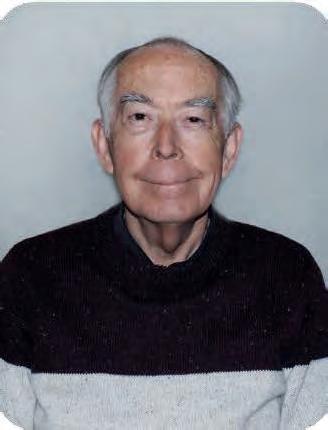
The Patient Safety Group (PSG) is a monthly meeting that exists to review the safety performance of PAHT. I am very pleased to be a required member of the meeting to view, comment and clarify, representing and reinforcing the patient perspective for the benefit of the community. The meeting is also attended by representatives from the newly established Hertfordshire and West Essex Integrated Care Board (ICB).
The PSG receives reports on incident management, serious incident assurance and Care Quality Commission (CQC) insight; along with many others. These reports demonstrate the efforts being made to monitor and correct the causes of incidents and improve performance overall. Special attention is shown to maternity incidents following the Ockenden Report to ensure PAHT provides an excellent maternity experience. I have been the Patient Panel representative for 2022, during which time I have fed back from each meeting a summary of patient issues where I feel the panel as a whole can assist improvement. I also probe subjects where I feel the patient, family or carer view may need to be expanded. We are frequently thanked by PAHT colleagues forour presence and input.
23
Complaints Reference Group collaboration
By Diane Deane-Bowers
The Complaints Reference Group is a sub-group of the Patient Panel, comprising several of our most experienced and loyal members. Recently, we contacted a senior nurse from Leeds Teaching Hospitals NHS Trust who is responsible for the smooth running of patient experience, including complaints. His hospital is much larger than PAHT and they have the resources to deal with complaints effectively, but they currently do not have independent scrutiny of such issues. Knowing that at our hospital, we have such a group, they are hoping for our assistance in setting up something similar.
Such a collaboration is probably unique among NHS trusts. We are not an expensive consultancy and we are not medically trained. However, we are a highly committed group of volunteers with abundant life experience and common sense. Our unique advantage is that we are autonomous from the hospital and our focus is primarily on the patient experience. We are all patients experiencing ongoing care and we want the optimum treatment for all, which includes ourselves. We are honest and passionate about improving patient care.
We invited the Leeds staff to attend our monthly virtual meeting recently as we were keen to receive objective feedback. They were truly surprised at the rigour and frank opinions expressed at the meeting and really appreciated a new perspective, i.e. that of the patient. They realise that the voice of the patient is invaluable and they are interested in establishing a team such as ours locally. We are very keen to assist them in this challenging, yet exciting, task of recruitment and we are sure our collaboration will be mutually beneficial.
A special thank you must be offered to the team for their commitmen t and invaluable insights. We must also express our gratitude to Jo Marchington from the PAHT patient experience team, who provides all the technical support for the meetings - no easy task when many pieces of correspondence are involved. We are in a privileged position to have been given this opportunity for oversight.
We believe our complaints scrutiny is essential, but we must not allow it to skew our vision and appreciation for the hospital. There are many patients who receive life-saving care annually, thanks to the dedication and expertise of PAHT staff, but they may not have expressed their gratitude directly.
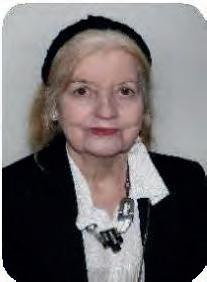
24
Improving essential care – Falls Prevention Group
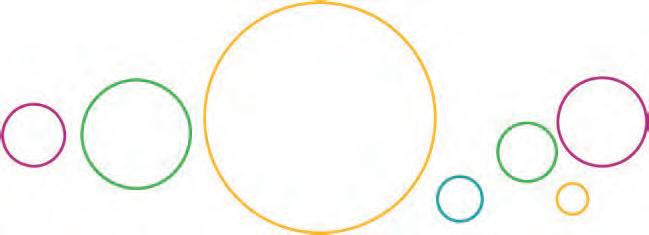
 By Andrew Stuttle
By Andrew Stuttle
The hospital had identified two issues where significant improvement was required, namely reducing pressure ulcers and falls. I attend the falls prevention meeting along with two other Patient Panel members, promoting the patient perspective to the improvement programme.
The hospital has appointed a lead nurse who has developed a falls reduction strategy with the aim of reducing the numberof falls with harm by 50%. This goal has proved to be very difficult to achieve as the strategy started just prior to the COVID pandemic, which brought a significant rise in falls due to many issues. Since the pandemic has waned in the UK, the number of falls has reverted to a little below its pre-pandemic level. However, because of the strategy, harm levels have fallen and the rate of falls versus the number of patients and bed days is now making an impressive reduction.
The lead nurse, Andy Dixon, has implemented a number of very significant improvements in all areas of the hospital; namely, the introduction of yellow arm bands, yellow blankets and yellow socks for those identified as at a high risk of falling. Additionally, staff in all wards are trained to reduce and fully investigate falls to correct practice and eliminate causes.
It is a privilege to be welcomed by the chair of the bi-monthly meeting and to ensure the patient perspective is paramount.
25
Other areas we have been involved in...
New hospital filming
We were invited to take part in filming about the new hospital and what it will mean for our community.
Thank you to Jacqueline Jackson, Angela Weeks, Alisha Clark and Khalid Javid where they shared their thoughts on what a new hospital will mean for them.
Jacqueline said: “This hospital saved the life of three of my family members, we have a lot of love and compassion in the community for the hospital...
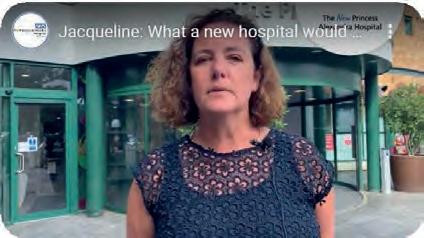
“I’m looking forward to the new hospital being built.”
Updated Blue Badge information
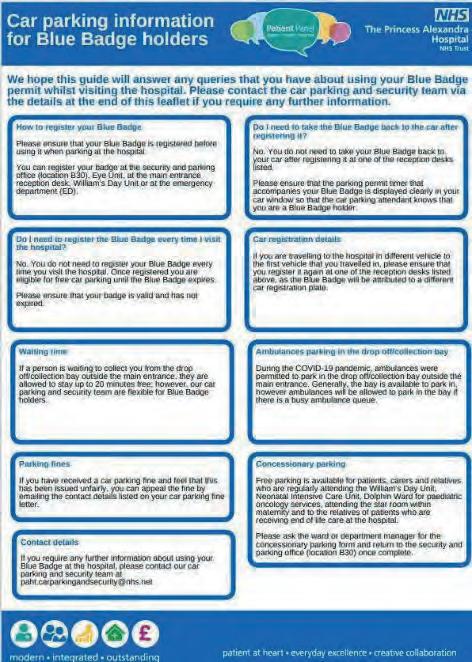
We were pleased when Ann Nutt updated the Blue Badge holders’ information sheet. The guide (pictured right) answered the most common questions that they may have when using the hospital car parks.
Supporting research
PAHT continues to support its people when undertaking research. Its main research activity is recruiting patients into high quality National Institute for Health Research (NIHR) portfolio adopted, multi-centre studies for which it receives funding from North Thames Clinical Research Network (NT CRN), hosted at Bart’s Health.
During 2021/2022, three commercial studies and 23 academic studies were recruited to. We continue to work closely with the research, development and innovation team, attending meetings and providing a useful resource for achieving the national objective, that every patient has the opportunity to be part of research.
26
Lanyards
We purchased coloured lanyards for PAHT colleagues working in the emergency department (ED).
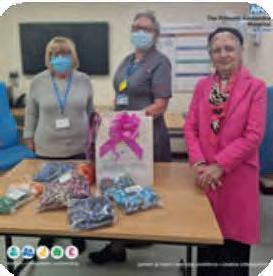
The lanyards aim to help patients and colleagues recognise and identify the different roles within the department easily. We do not usually purchase supplies for departments, however we were keen to support the team whilst they continue to respond to a high demand for urgent and emergency care services.
Cytosponge - lived experience
By Cyril Cleary, Patient Panel member and lead on cancer
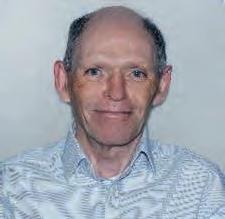
As part of a national initiative, PAHT is implementing a new Community Diagnostic Centre (CDC), and, as a member of the Patient Panel and Cancer Board, I was invited to become involved in a particular diagnostic initiative, from a lived experience perspective.
The new project is to introduce Cytosponge, which has been developed as an alternative option to endoscopies, to ensure early diagnosis of Barrett’s Oesophagus, or other upper gastrointestinal (GI) symptoms which, in some cases, can develop in to cancer. The treatment is non-invasive and very simple to administer in a GP surgery or hospital setting.
The great advantage is it allows the clinical teams to monitor and scope a much greater number of patients, frees up endoscopies for those who most need them, and can be dealt with sooner.
These symptoms often start with heartburn or acid reflux, and can often persist for years, so having a new and effective procedure to identify potential problems quickly will save much more complex and costly problems in the long run, relieve anxiety, and heralds an e normous step forward.
27
How do you say thank you to exceptional teams?
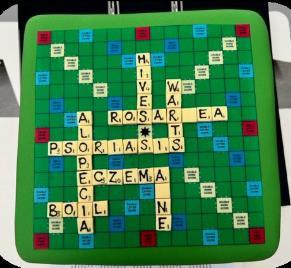
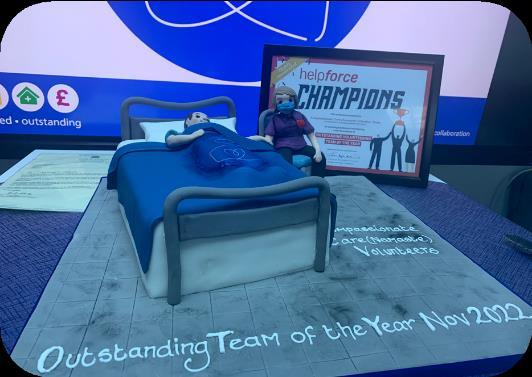
...with cake
We have presented cakes made by local bakers, Dorringtons, to say thank you to our teams across the year - it was fantastic to see how delighted they were.
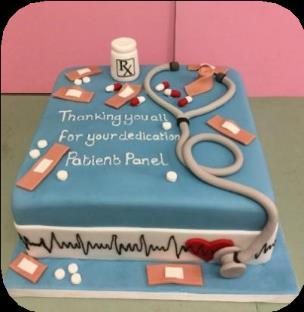
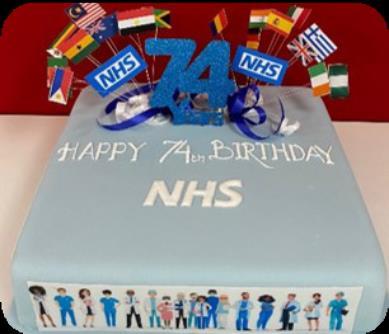
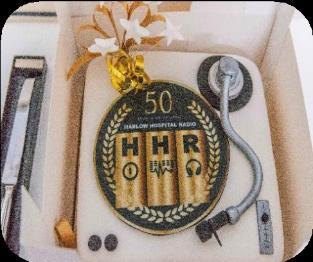
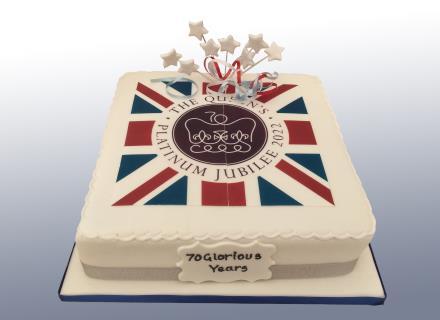
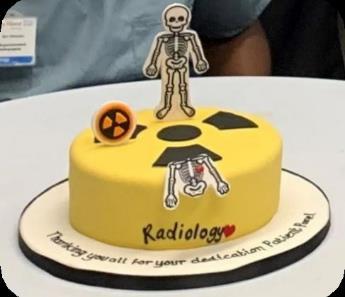
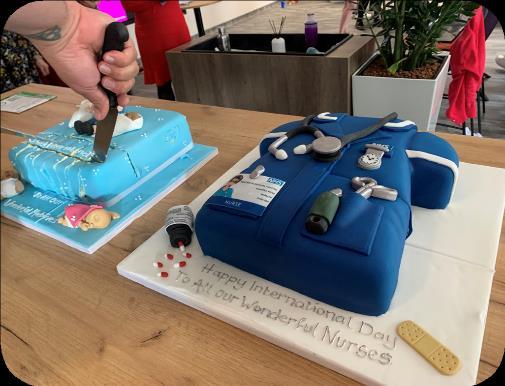
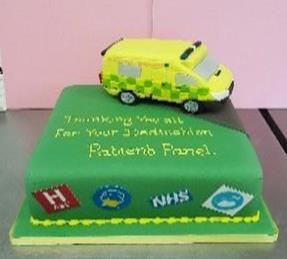
28
International Nurses’ Day and Midwifery Emergency department Compassionate carers Radiology Queen’s Jubilee Harlow Hospital Radio NHS 74TH birthday Intensive Care Unit Dermatology
Committee members
Areas represented:
• Quality and safety
• Equality and diversity
• Projects lead
• Rewards and recognition
• One Step at a Time
• Conference planning
Vice-chair
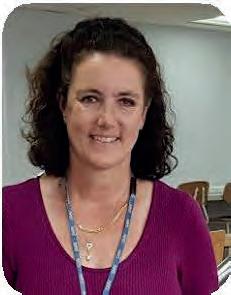
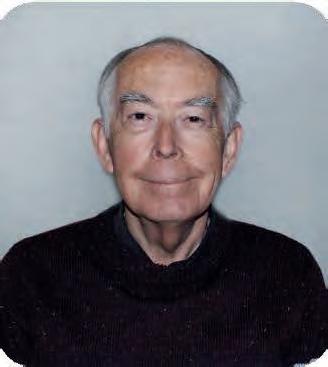
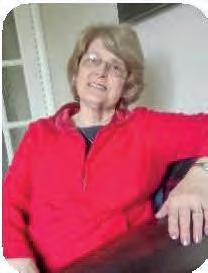
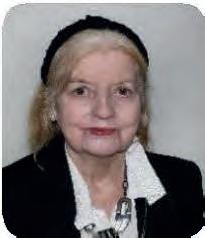
Areas represented:
• Chair, Complaints
Reference Group
• Infection prevention and control
• Digital Senate
• Rewards and recognition
• Conference planning
Areas represented:
• Readers’ Panel
• Falls
• Research
• Discharge Planning Steering Group
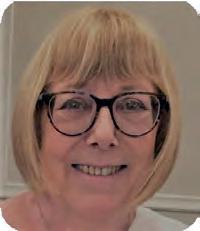
• Monitored Dosage Systems Group
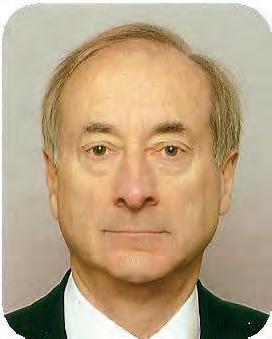
Areas represented:
• Patient Safety Group
• Improving
Essential Care (Falls Prevention Group)
• Complaints
Reference Group
• Readers’ Panel
• Chaplain
Areas represented:
• Complaints
Reference Group
• Risk Management Committee
Areas represented:
• Chair of telephone surveys
• Complaints
Reference Group
29
Ann Nutt Chair
Diane Deane-Bowers
Angela Weeks Member
Andrew Stuttle Member
Jacqueline Jackson Member
Kieron Clegg Member
Sandra Newens Member
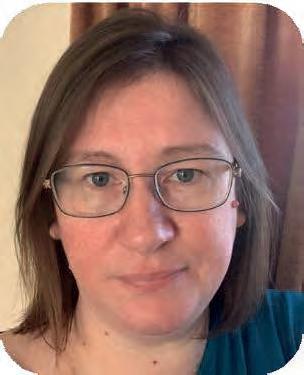
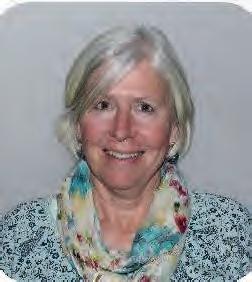
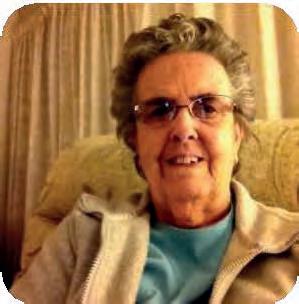
Areas represented:
• Chair, Organ Donation Committee
• Complaints
Reference Group
• Readers’ Panel
Pam Dixon Member Areas represented:
• Readers’ Panel
Frank Sumair Member Areas represented:
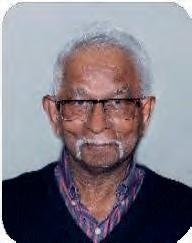
• End of Life Committee
Jane Mason Member
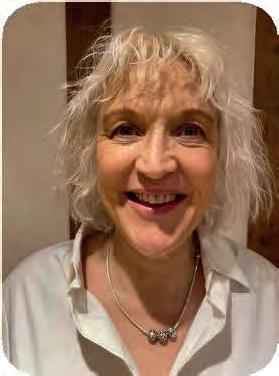
Areas represented:
• Learning disabilities
Victoria Kerr Member
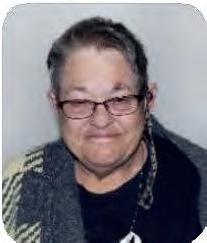
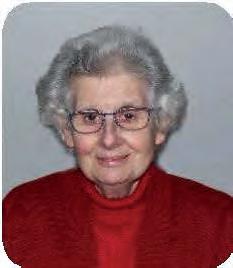
Areas represented:
• Children with additional needs
Audrey Taffs Member Areas represented:
• Readers’ Panel
Khalid Javid Member Areas represented:
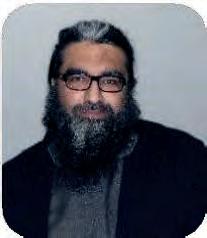
• Projects
• Resuscitation Committee
Cyril Cleary Member Areas represented:
• Cancer services
• One Step at a Time
Quinton Cartlidge Member
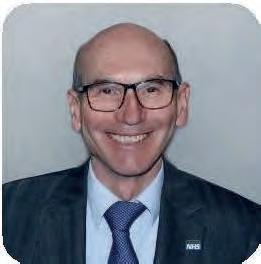
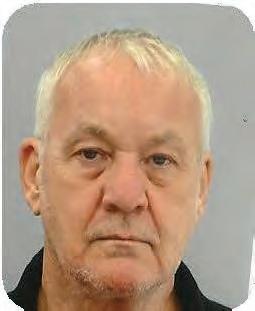
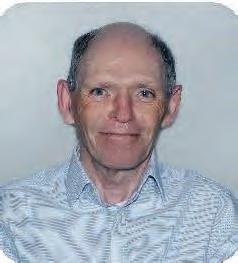
Areas represented:
• Medicines
Julia Green Member Areas represented:
• Minute secretary
Mark Hamilton Member Areas represented:
• Research, Development and Innovation Group
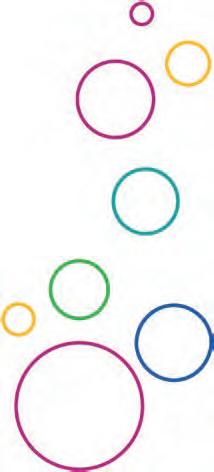
• Projects
• Young people
30
Useful contact numbers
Hospital switchboard: 01279 444455
Discharge team: 01279 967297
Learning disability team: 01279 978742
Palliative care team: 01279 977846
Chaplaincy team: 01279 973407
The patient advice and liaison service (PALS): paht.pals@nhs.net or 01279 827211
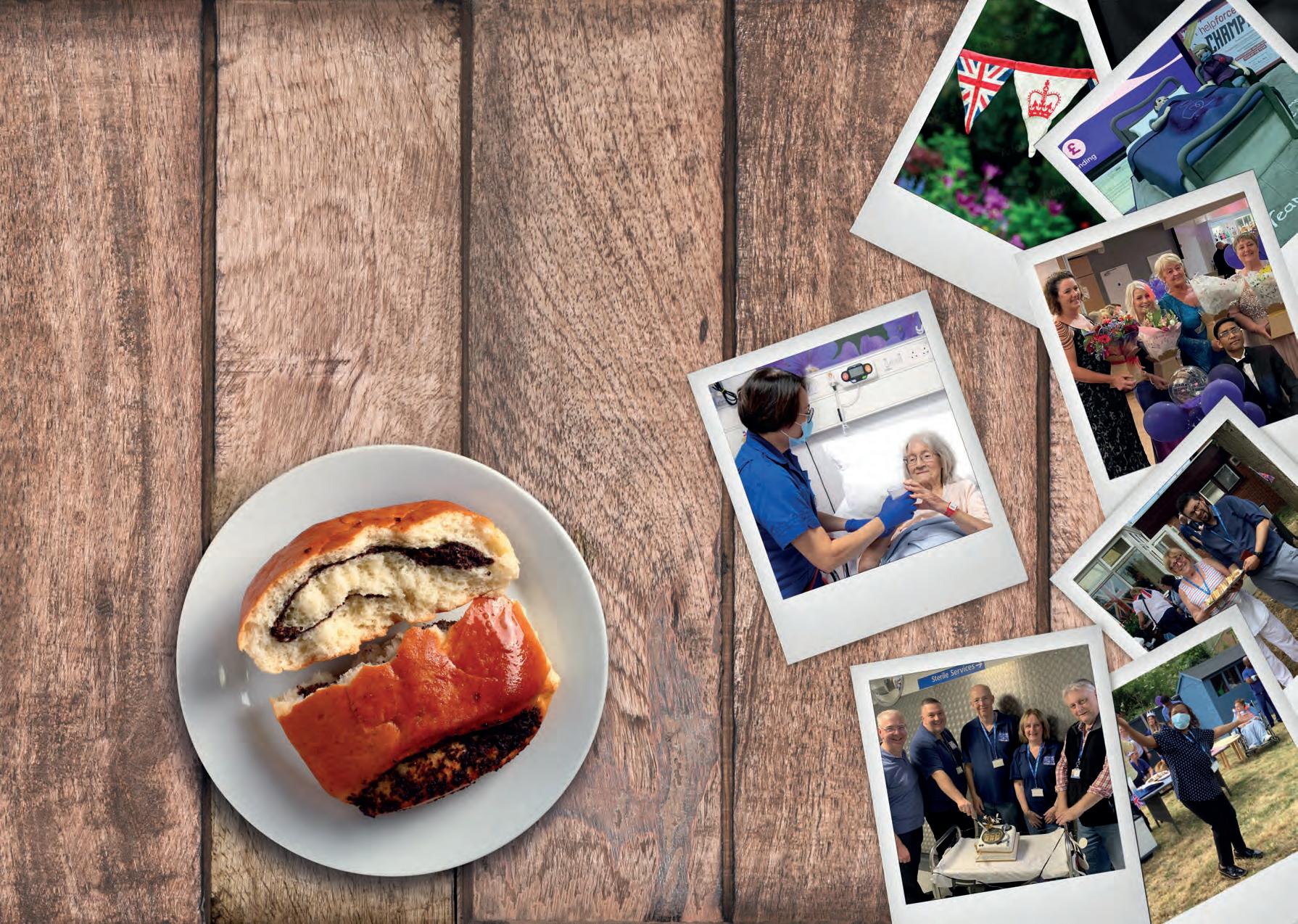

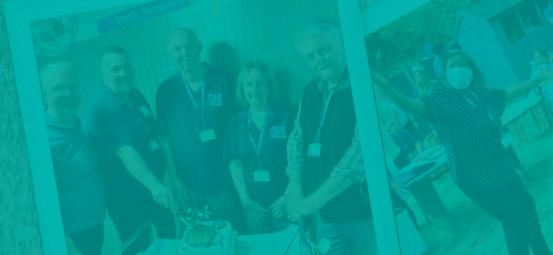

The Queen’s Award for Voluntary Service Thank you for your support Patient Panel, Ground floor Kalmar House, Princess Alexandra Hospital Hamstel Road, Harlow CM20 1QX Telephone: 01279 962367 Email: paht.patient.panel@nhs.net www.pah.nhs.uk

 The Queen’s Award for Voluntary Service
The Queen’s Award for Voluntary Service













 By Jacqueline Jackson, Patient Panel member
By Jacqueline Jackson, Patient Panel member









 By Diane Deane-Bowers, vice chair
By Diane Deane-Bowers, vice chair





 By Ann Nutt, chair
By Ann Nutt, chair







































